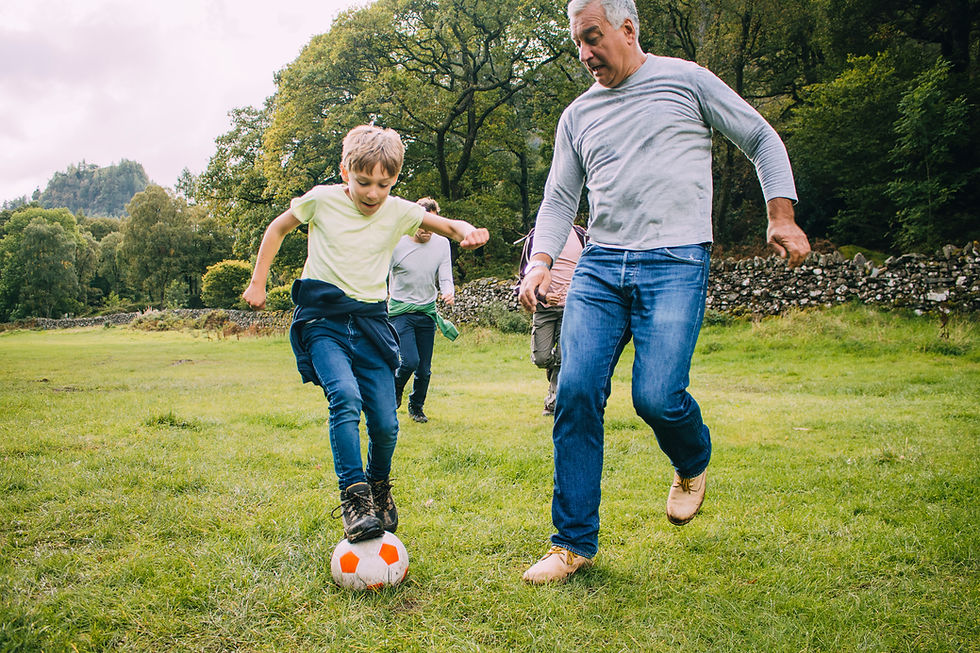Tai Chi - What's it all about?
- Julie Manley

- Jun 4, 2017
- 3 min read

If you think Tai Chi is something best left to Mr. Miyagi and The Karate Kid, it’s time for an update. Tai Chi originated in ancient China as a martial art and is a slow motion, low-impact exercise that has value in treating or preventing many health problems – also referred to as “moving meditation”. It’s easy to get started even if you aren’t in top shape or the best of health. Although Tai Chi is slow and gentle, it addresses the key components of fitness – muscle strength, flexibility, balance, and aerobic fitness. There have been many high value studies and reviews that have shown the benefits of Tai Chi in various populations:
Knee Osteoarthritis (OA) – a randomized control trial showed that Tai Chi produced similar beneficial effects to those of a standard course of PT in individuals with symptomatic knee OA, over the course of 52 weeks.
Multiple Sclerosis (MS) – a systematic review including 8 studies (a total of 193 participants) showed that participants with MS enrolled in Tai Chi had better balance, gait and flexibility, less fatigue and depression, and better quality of life.
Parkinson’s Disease (PD) – a systematic review including 11 studies (a total of 548 participants) concluded that overall participants had better balance and increased well-being after being enrolled in Tai Chi.
Falls Risk – another systematic review with 13 studies showed that the practice of Tai Chi significantly prevents the risk of falling in at-risk individuals (Del-Pino-Casado et al., 2016).
Post-Heart Attack – in a study from 1996, 126 post-heart attack patients were assigned to either Tai Chi, an aerobic class or a non-exercise group. The patients from the Tai chi class increased their cardiovascular fitness and lowered their blood pressure, as well, 80% of the people in that group continued the practice even after the study (which was 70% more than the aerobic group).
Dementia and Alzheimer’s Disease – a study split 120 elderly Shanghai residents into four groups: tai chi, walking, increased social interaction, and normal routine (no change). After 40 weeks, those who practiced Tai Chi three times a week had the largest improvements in brain volume – an important part of cognition since gray matter typically shrinks with age.
As you can see, there’s great evidence and support for the practice of Tai Chi for all individuals, and is something that is provided here at Active Living by our own Tracy Huckins. A Tai Chi class generally includes these parts:
Warm-up – repetitive flow movements going from head to toe
Instruction and practice of tai chi forms
Qigong movements – repetitive movements that are expressed through relaxed stretching, visualization and breathing, which is more of a spiritual/meditative routine
The practice of Tai Chi can be a rewarding experience, and there are many different types to choose from – some focus on health, while others stress competition of self-defence. Get started by observing or trying a class, and be sure to ask questions to find out whether it’ll be a good fit for your lifestyle and goals. Happy practicing!
Sources from:
Cwiekala-Lewis, K.J., Gallek, M., Taylor-Piliae, R.E. (2017). The effects of Tai Chi on physical function and well-being among persons with Parkinson’s Disease: A systematic review. J Bodyw Mov Ther. 21(2): 41-421. doi: 10.1016/j.jbmt.2016.06.007
Del-Pino-Casado, R., Obrero-Gaitan, E., Lomas-Vega, R. (2016). The effects of Tai Chi on Reducing the Risk of Falling: A Systematic Review and Meta-Analysis. Am J Chin Med. 44(5):895-906. doi: 10.1142/S0192415X1650049X
Lam, P., Kayne, N. (2006). Tai Chi for Beginners and the 24 Forms. Limelight Publishing.
Taylor, E., Taylor-Piliae, R.E. (2017). The effects of Tai Chi on physical and psychosocial function among persons with multiple sclerosis: A systematic review. Complement Ther Med. 100-108. doi: 10.1016/j.ctim.2017.03.001
Wang, C., Schmid, C.H., Iversen, M.D., Harvey, W.F., Fielding, R.A., Driban. J.B., Price, L.L., Wong. J.B., Reid, K.F., Rones, R., McAlindon, T. (2016). Comparative Effectiveness of Tai Chi Versis Physical Therapy for Knee Osteoarthritis: A Randomized Trial. Ann Intern Med. 165(2):77-78. doi: 10.7326/M15-2143




Comments